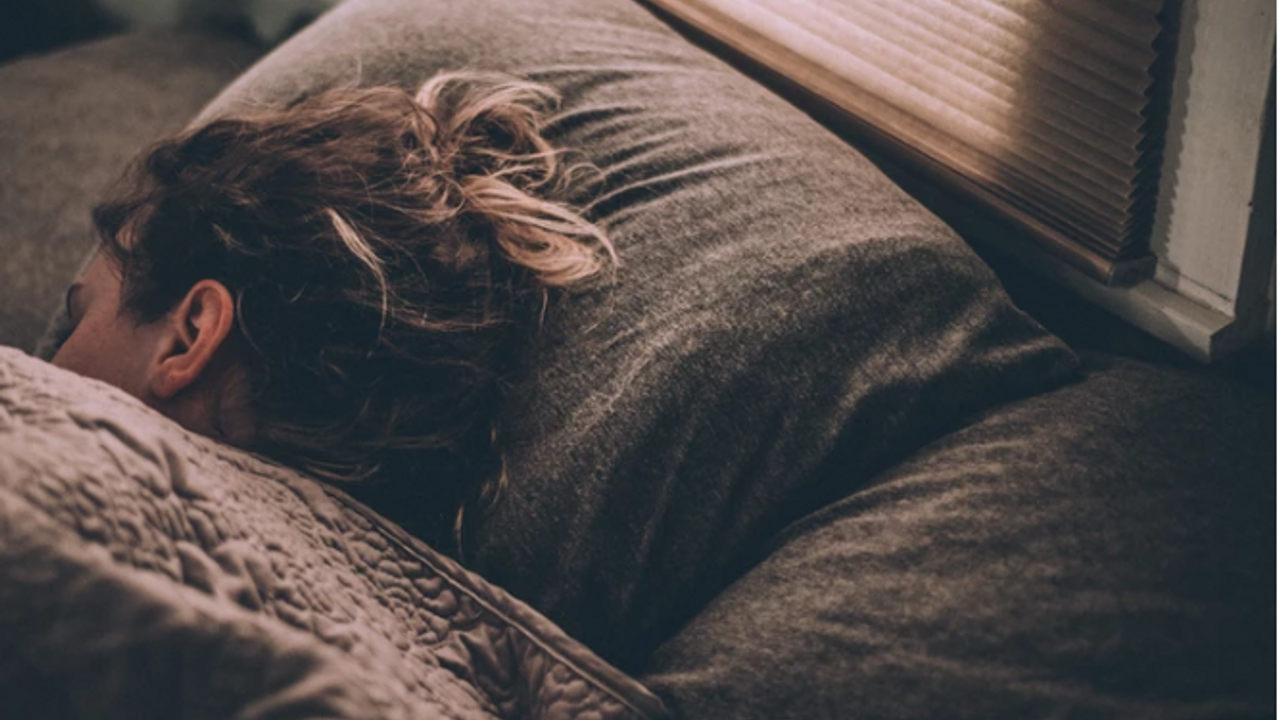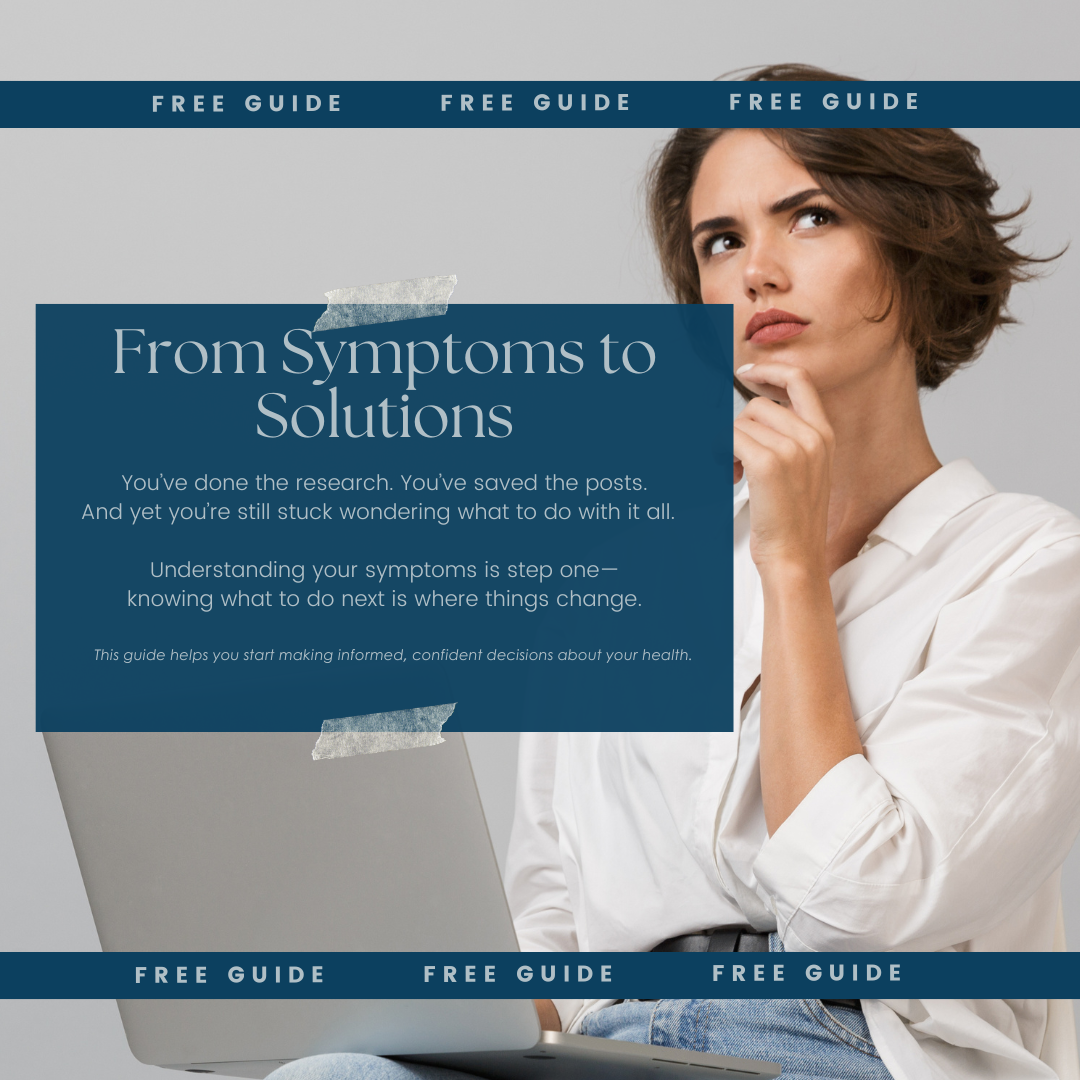Sleep and Menopause - 14 simple strategies to a better night's sleep
Aug 09, 2020
SLEEP - the midlife woman’s nemesis!!
I don’t know who’s getting less sleep; Karen with an infant or Karen at 47?
Sleep is a topic I talk about a lot! To my coaching clients, to my personal training clients, to my nutrition clients, to my family . . . because it’s important and because it affects your overall health and wellness!
Sleep is also a topic I myself struggle with . . . A LOT!!
It’s not uncommon to find me sitting on my couch reading a book at 4 am; not because I love being up before the rest of the world but once I’m up, there is no going back!
For the most part I don’t have trouble falling asleep, it’s staying asleep where the struggle is. And this struggle is pretty new, like in the last 16 months new.
Yup, right around the time I started to struggle with my weight, my endurance, my ridiculous cravings, mood swings, thinning hair, changes in my eyesight, random heart palpitations . . .. you get it! When I hit PERIMENOPAUSE!!
Women in midlife totally earn the title of the most sleep deprived group!! And with COVID, the statistics are getting even worse.
So if you too are having trouble falling asleep or staying asleep, believe me, you are not alone.
Sleep disturbance is one of the most common problems midlife and perimenopausal women will experience. Now while stress and our busy schedules may be partially to blame, peri/menopause is a more likely the cause for most women. As estrogen levels drop, so does our ability to get a good night’s sleep.
Fun Facts:
-
Up to 60% of women in the menopause transition experience difficulties sleeping
-
56% of women get less than seven hours of sleep a night
-
26% of women will have symptoms severe enough to qualify for a diagnosis of insomnia
Poor sleep often gets the brush off, as women power through the day fueled by caffeine and determination.
Unfortunately, sleep disturbance may only get worse in postmenopause, and chronic insomnia poses serious health risks, including a higher risk of depression, obesity, poor immune system function, difficulties with concentration and memory, and so much more.
It's so important to start working on finding ways to get quality sleep before it gets so extreme!
Your fluctuating sex hormones are responsible for most sleep issues.
Estrogen directly affects sleep, in that higher levels of it are associated with mental sharpness, positive mood, and good sleep patterns.
Progesterone has a calming effect on the body, helping us to relax and maintain a positive mental state.
Testosterone is mostly responsible for sex drive but also boosts overall energy.
When these three hormones are at lower levels, it’s no wonder why regular, restful sleep is one of the first things to go for many women during middle age.
Poor sleep doesn’t just make you understandably exhausted and cranky the next day - it has also been linked to increased nighttime junk food cravings, which can lead to health problems, like obesity and diabetes.
Insomnia and inadequate sleep can also increase women’s risk for anxiety and depression.
But here is the good news . . . There are strategies we can put in place today to help us get a better night's sleep tonight!
One way to improve your ability to fall asleep faster and stay asleep is by practicing good sleep hygiene.
Sleep hygiene is similar to all those healthy hygiene habits we were taught as little kids (brushing your teeth, showering daily, washing your hands . . . you get it) in that it is a set of healthy behaviors we perform every day to help prepare us for a good night’s sleep.
As we get older, and of course wiser, we soon learn what no longer works for us with regard to sleep hygiene, like limiting our caffeine intake in the evening or not eating a heavy meal before bed. But there are still other factors that can affect our sleep that sometimes we have little control over - raising kids, stress at work, and other issues, and we soon learn to settle for less than optimal sleep quality.
And if you're anything like me, you’ve probably created some of your own unhealthy habits that are affecting your sleep, like being on your phone, checking your emails before bed, or watching TV in bed.
Before we jump right into what some healthy habits look like, let’s take a look at some habits that may be disrupting your sleep:
-
Too much caffeine during the day or evening.
-
Drinking alcohol in the evening. Alcohol may help you fall asleep faster, but it disrupts sleep in the second half of the night when the body begins to process the alcohol.
-
Strenuous exercise too close to bedtime. Just make sure that you avoid tough workouts 1-2 hours before bed.
-
Eating indigestion-causing foods in the evening. Spicy foods, fried or fatty meals, heavy, rich foods, citrus, and carbonated beverages all might cause heartburn and other bothersome stomach issues.
-
Eating unhealthy foods, particularly sugar-sweetened foods and beverages, can impact sleep as can a higher calorie intake.
-
Taking long naps during the day. If you must nap, limit the duration to no more than 20-30 minutes.
-
Smoking, like caffeine, is also a stimulant.
-
Not getting enough sunlight during the day. Exposure to light during the day and darkness in the evening controls our circadian rhythm.
-
Getting too much bright light in the evening also disrupts your circadian rhythm. Sources include light from the TV, cellphones, computers, and lamps.
-
Sleeping in a room that’s too warm.
-
Noise from outside or a partner that snores. We may become more sensitive to noise as we age.
-
Having upsetting conversations in the evening. The stress of an argument or difficult conversations can cause a heightened state of alertness. Being in this state can make it difficult to fall asleep and cause anxious thoughts at night that interfere with sleep.
If you are reading this, you’re probably looking for some answers as to why on Earth - on top of everything else - sleep has to be so difficult during this season. But more importantly, you’re probably wondering if there’s anything you can do about it - and the answer is YES!! Yes, there is!!
Here are just a few simple healthy sleep hygiene strategies you can start incorporating today!!
-
Move your body every day
-
Expose yourself to sunlight every day
-
Establish a healthy whole-food, plant-based diet
-
Limit your caffeine intake
-
Limit fluid intake close to bedtime
-
Avoid long naps
-
Dim the lights in the evening
-
Take a warm bath or shower ty.
-
Create a relaxing pre-sleep routine
-
Create a consistent sleep schedule
-
Turn off digital devices two hours before going to sleep
-
Designate your bedroom for sleep only and make it a relaxing oasis of calm
-
Sleep in a cool room
-
Eliminate as much noise and light as you can.
If you’ve made these sleep hygiene changes and don’t see improvement after a few months, talk to your doctor or a sleep specialist. You may have a sleep disorder like sleep apnea or another clinical problem that requires diagnosis and treatment.
I've love to hear from YOU! How has your sleep changed since hitting midlife? What are you doing to help find quality sleep? What of these 14 strategies could your incorporate today to help you sleep better tonight?
Stay connected with news and updates!
Join our mailing list to receive the latest news and updates from our team.
Don't worry, your information will not be shared.
We hate SPAM. We will never sell your information, for any reason.


